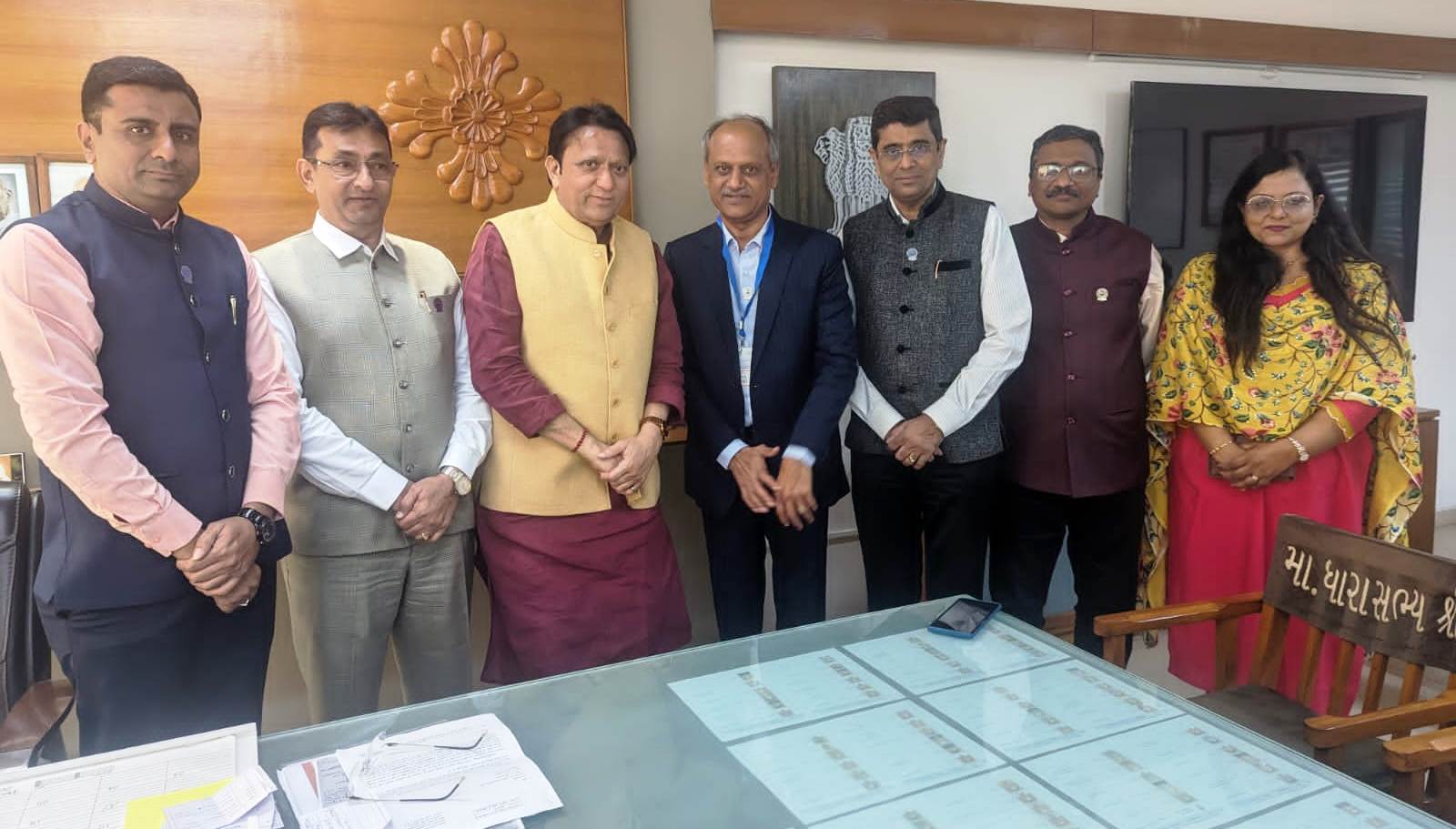Gujarat : SGCCI Urges Government to Expedite New Textiles Policy
In a recent delegation, SGCCI's President Ramesh Vaghasia, Vice President Vijay Mewawala, and former President Himanshu Bodawala convened with Gujarat Industries Minister Balwantsinh Rajput, stressing the paramount significance of a new textile policy for Gujarat's textile landscape.

Advertisement
Surat : The Southern Gujarat Chamber of Commerce and Industry (SGCCI) has embarked on a fervent appeal to the Gujarat Government, advocating for the unveiling of a new textiles policy aimed at propelling the accelerated growth of the textile sector, particularly in Surat.
In a recent delegation, SGCCI’s President Ramesh Vaghasia, Vice President Vijay Mewawala, and former President Himanshu Bodawala convened with Gujarat Industries Minister Balwantsinh Rajput, stressing the paramount significance of a new textile policy for Gujarat’s textile landscape.
Ramesh Vaghasia, President of the Chamber of Commerce, underscored the urgency of the situation, emphasizing that the existing textile policy is scheduled to conclude on December 31, 2013.
Expressing concern over the absence of continuity, Vaghasia urged the Minister to expedite the announcement of the new textile policy without any interlude, a departure from past practices where blackout periods were absent in the textile sector’s policy transitions.
An essential facet highlighted in the discussion was the need to encompass the spinning sector of man-made fibers, which remained excluded from the textile policy of 2019. Vaghasia ardently advocated for the inclusion of this segment in the forthcoming policy, citing the 2019 policy’s sole provision of incentives for cotton spinning.
The delegation emphasized the imperative nature of incorporating various textile sectors, such as weaving, knitting, preparatory, dyeing processing, and embroidery, into the purview of the new textile policy. Additionally, they advocated continuing the power subsidy benefits provided to textile units with high and low tension power connections under the current policy.
Vaghasia accentuated the significance of aligning Gujarat’s textile policy with those of neighboring states like Maharashtra, Karnataka, Telangana, and Tamil Nadu, where capital subsidies are extended to textile units. He called for similar provisions in Gujarat’s new textile policy, emphasizing the need for subsidies and assistance, mirroring the precedents set by the previous policies.
“The early announcement of the new textile policy is crucial, especially when numerous new projects are in the pipeline. Comprehensive inclusion of the suggested points will not only benefit Surat but will also positively impact the entire textile industry in South Gujarat,” highlighted SGCCI President Ramesh Vaghasia, accentuating the potential advantages awaiting the textile sector if these recommendations are incorporated into the upcoming policy.
Advertisement

